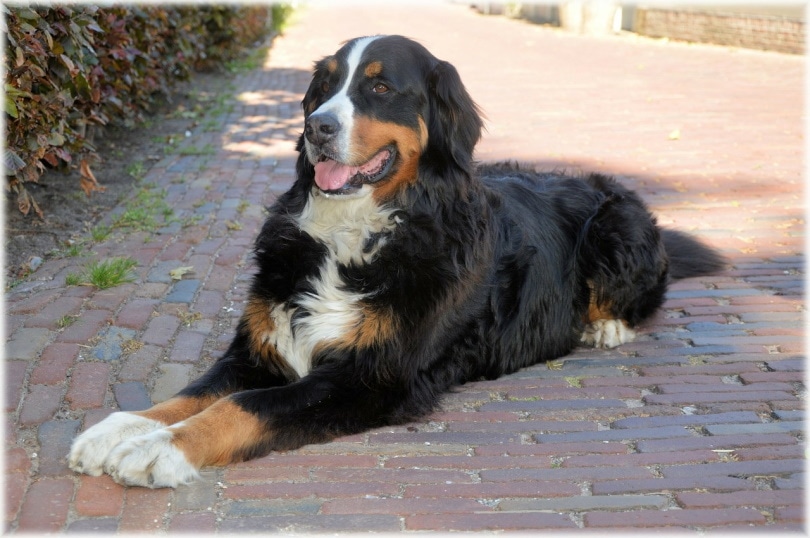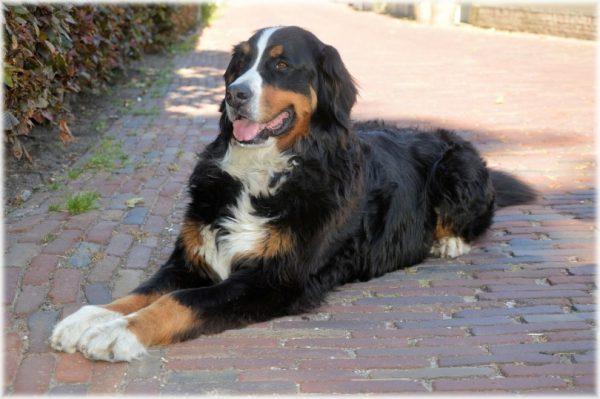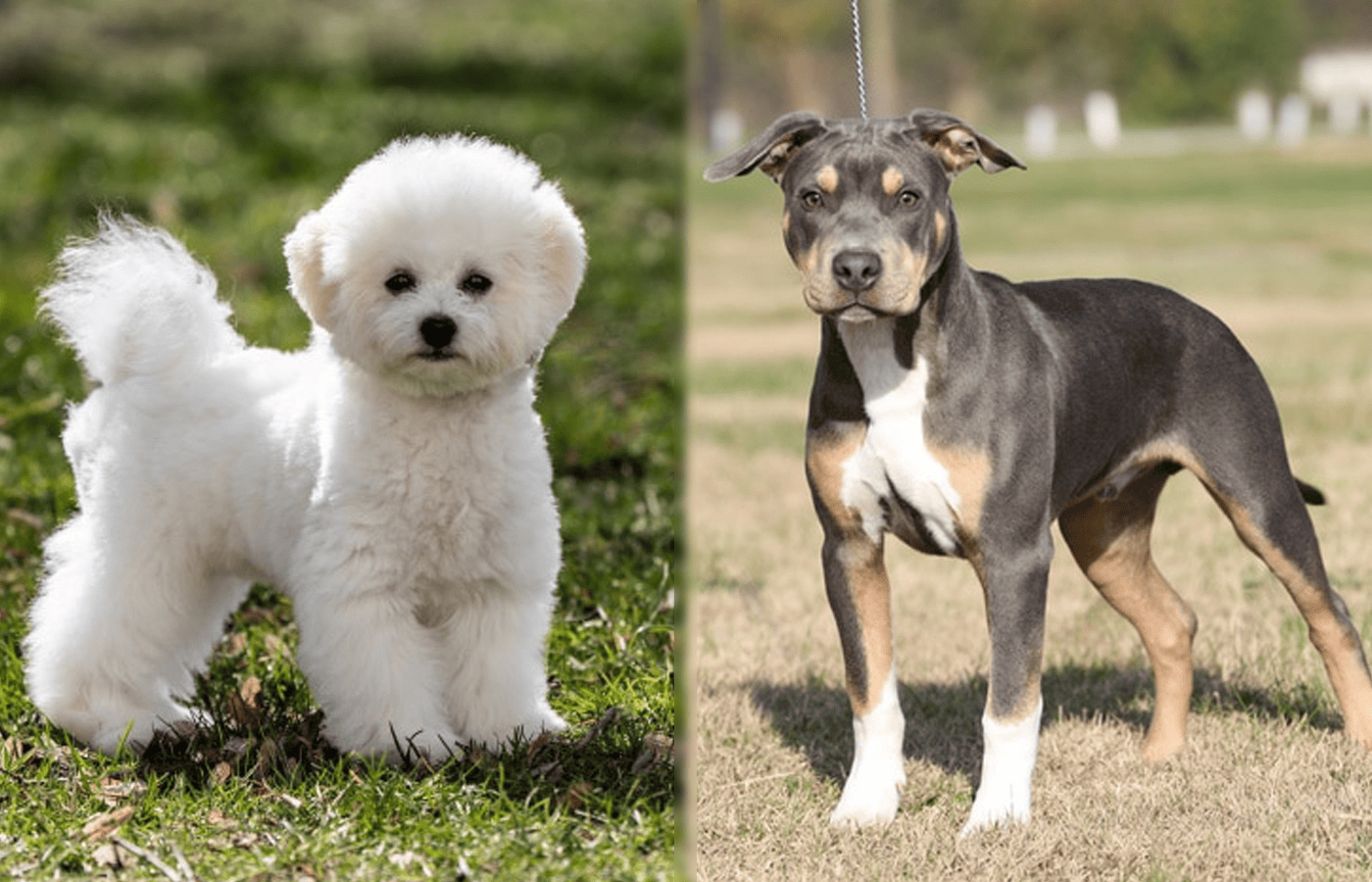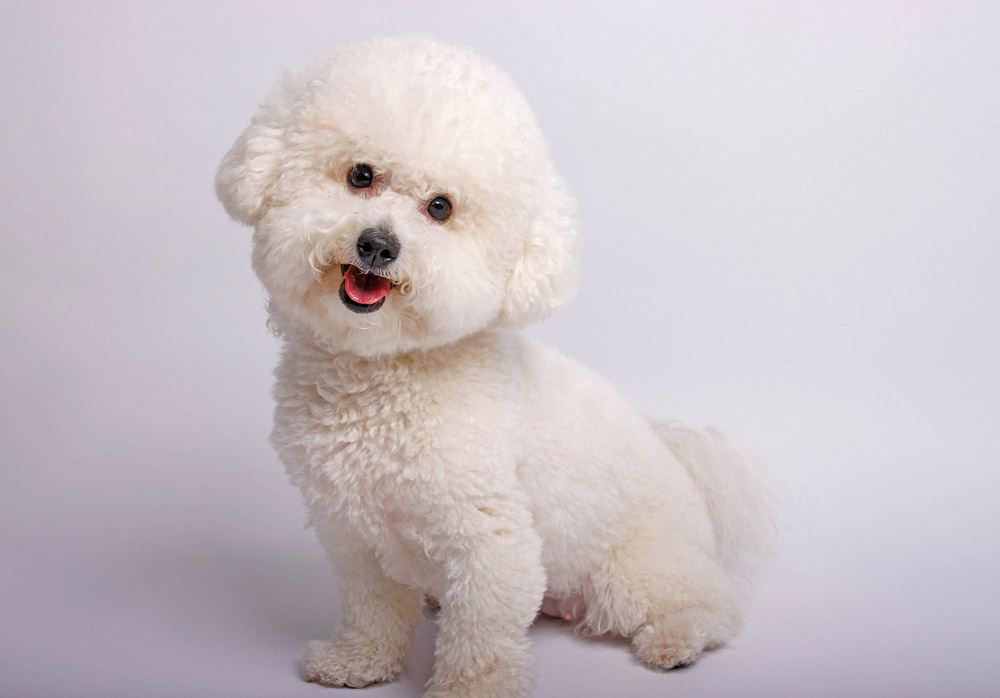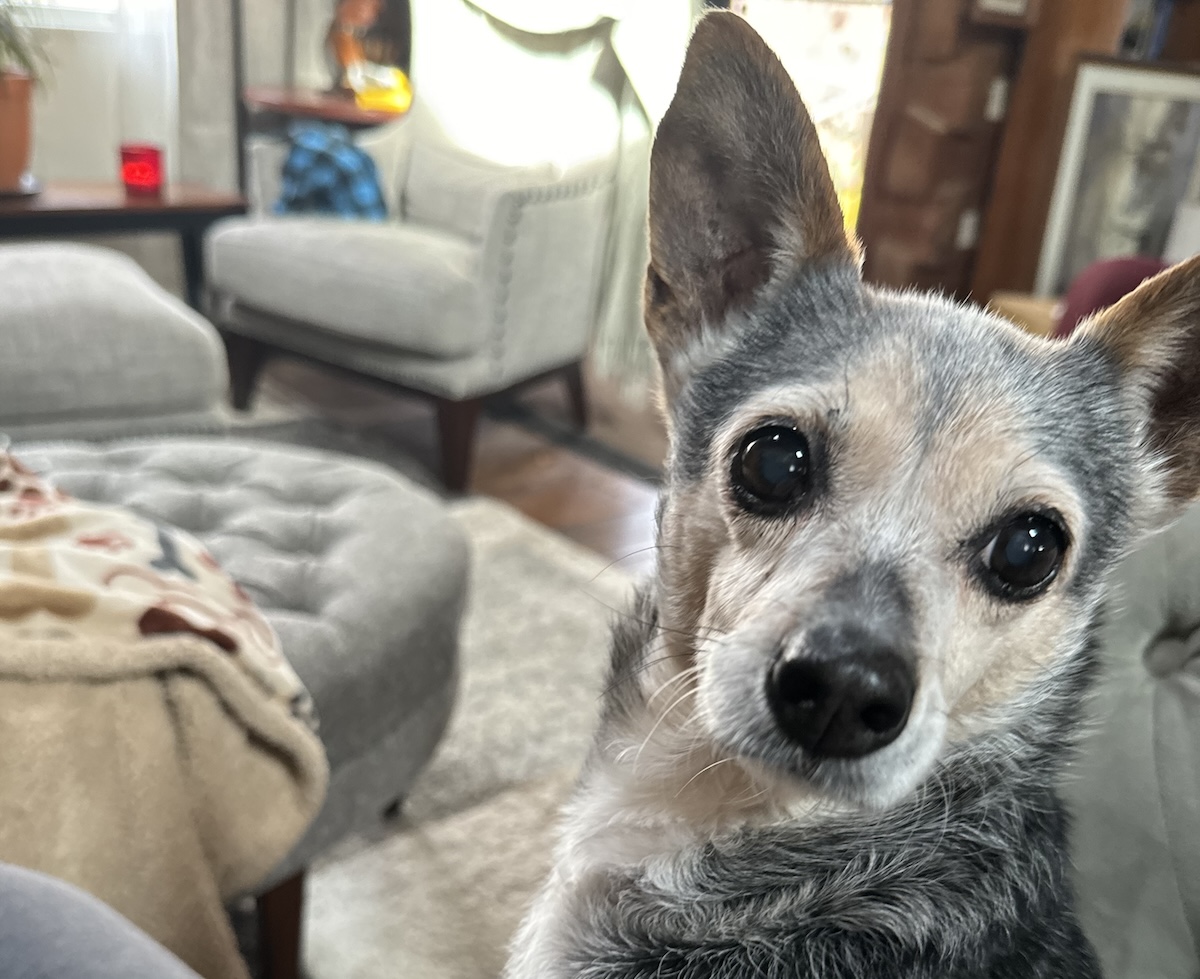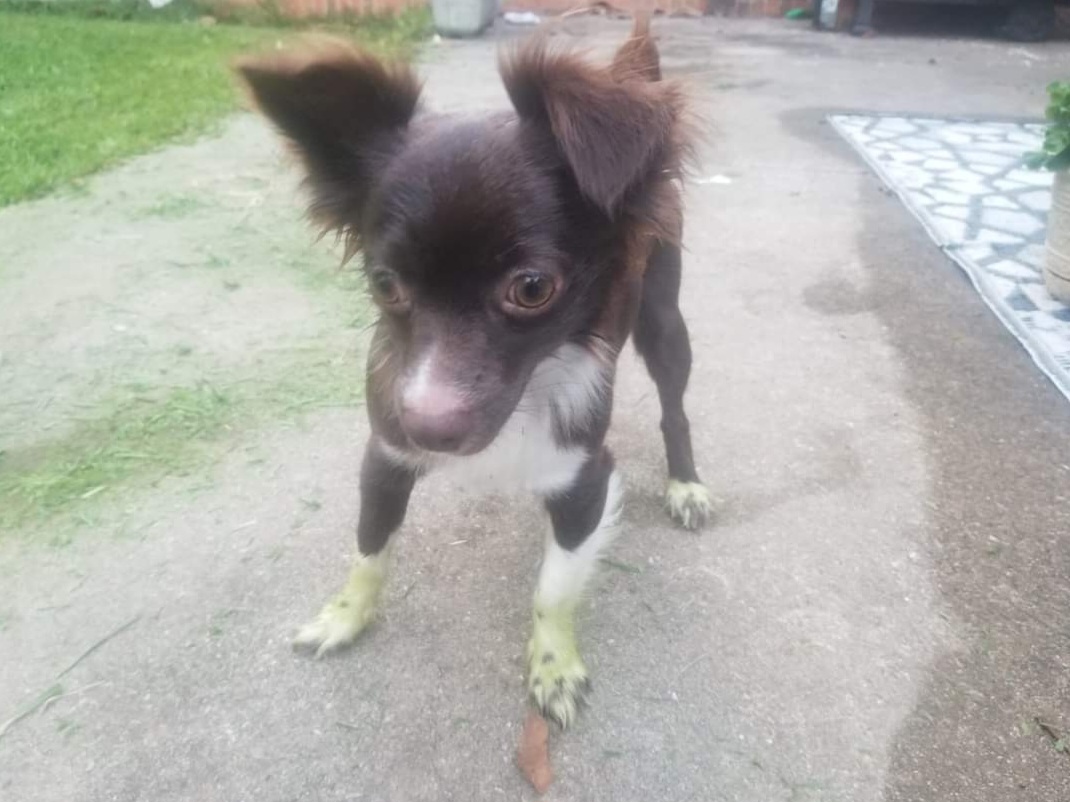Bringing a dog into your home not only requires a lot of preparation but also comes with a lot of questions. This is especially true for people who deal with allergies. For years, people with allergies avoided dogs completely. With the knowledge we now have on dog breeds, how much they shed, and ways to manage our allergies, more allergy sufferers are deciding it’s time to get a dog of their own.
One dog breed that is hard to resist is the Bernese Mountain Dog. Not only are these dogs gorgeous, but they love the outdoors, do well in the cold, and are loyal companions. But is a Bernese Mountain Dog hypoallergenic? The answer to that question is no, the Berenes Mountain isn’t hypoallergenic. However, that doesn’t mean a person with allergies can’t own one of these low-shedding dogs. Let’s learn more about the Bernese Mountain Dog, their luscious coats, and what hypoallergenic means in the dog world.
Meet the Bernese Mountain Dog
Before we dive into allergies and the word hypoallergenic, let’s first learn about the dog in question. The Bernese Mountain Dog was brought to Switzerland over 2,000 years ago by the Romans. The breed was created by crossing breeds of Mastiffs with guard-type dog breeds. The breed’s name comes from the area of Switzerland where they lived, Canton of Bern. The Bernese is one of four dog breeds in Switzerland known for their tri-colored coats. What sets the Bernese apart from the others, however, is the length of their coats.
Originally, these dogs were used as typical farming dogs. They helped keep the cattle herded and protected from other animals. Their size and strength also made them ideal for pulling carts and transporting farming goods like milk when horses weren’t an option. As other dog breeds made their way to Switzerland, the Bernese Mountain Dog became less popular. Luckily, the breed wasn’t forgotten. In 1907, the first specialty club for this breed was created and helped their numbers rise again. In 1926, the breed made its way to the United States where it was recognized by the American Kennel Club a few short years later in 1937.
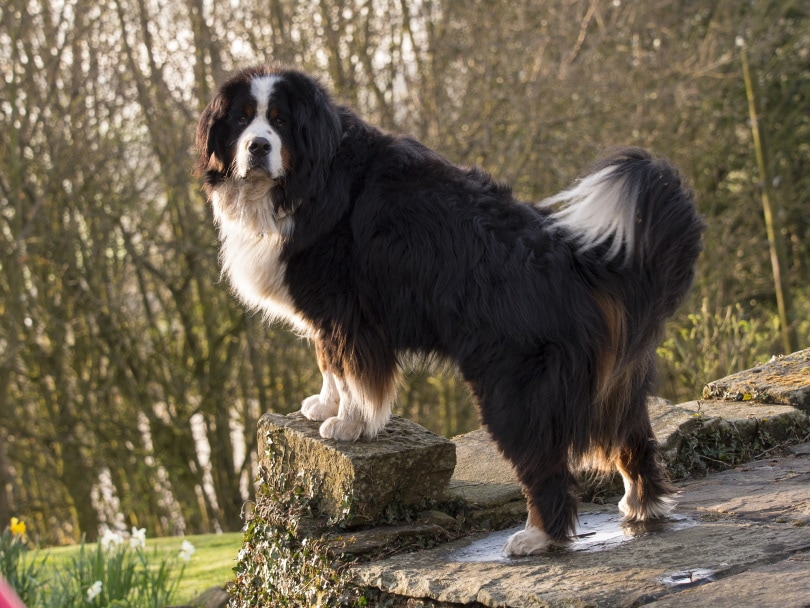
The Truth About Hypoallergenic Dogs
We’ve all heard certain dog breeds be called hypoallergenic. Unfortunately, that simply isn’t the case. The word hypoallergenic is used to describe an animal that has no allergens that may trigger reactions. No dog is completely free of allergens. This is because the protein most people with dog allergies react to is found in saliva, urine, and pet dander. Most of us instantly think that shedding hair is the culprit for allergies, but it isn’t. The protein in the saliva and urine sticks to your pet’s fur. When the dog sheds its coat to make room for a fresh one, the dander is scattered throughout the home and the protein scatters with it. This spreads the protein to your carpet, clothes, and other parts of the home. It’s even in the air. That’s what triggers the allergic reactions.
Hypoallergenic dogs, as they are labeled, aren’t free of allergens. What sets these dog breeds apart is the lowered shedding levels. If a dog breed doesn’t shed as often, or as much, fewer allergens are being released into the air, and around the home, from the loose hairs. Even dogs with long coats, like the Bernese Mountain Dog, can be called hypoallergenic due to the fact they don’t shed as much as other dog breeds.
Bernese Mountain Dogs and Allergies
Why do people ask about Bernese Mountain Dogs being hypoallergenic, especially with the breed having such long fur? It’s thanks to their low-shedding quality and lower maintenance grooming. Bernese Mountain Dogs can retain their fur so well thanks to the area they hail from, Switzerland. Things get a bit cold in Switzerland. To help deal with this cold weather, the Bernese Mountain Dog evolved to keep as much of their thick coat as possible. They only shed when it’s necessary so they can stay warm and toasty.
For allergy sufferers, the Bernese Mountain Dog is a great choice. Not only do they retain their coats for warmth, but they don’t require a lot of upkeep. This means you won’t have to worry as much about brushings causing your allergies to flare. This doesn’t mean your Bernie shouldn’t be groomed, however. They’ll still require routine baths and a weekly brushing. You just won’t be dealing with tons of loose hair when you take on these tasks.
Tips to Help Bernie Owners with Allergies
Let’s take a look at a few tips to help you and your Bernie co-exist without a lot of allergy flare-ups. This should make life easier for you, and of course, be better for your health.
Make Grooming Easier
Yes, your Bernese Mountain Dog needs to be groomed regularly. However, you can make this easier on yourself. Create a grooming schedule that works for you and your pet, then stick to it. Also, when bathing your Bernie, go ahead and brush them at the same time. When pet dander is wet, it’s less potent. This will help you avoid flare-ups when bath time comes around.
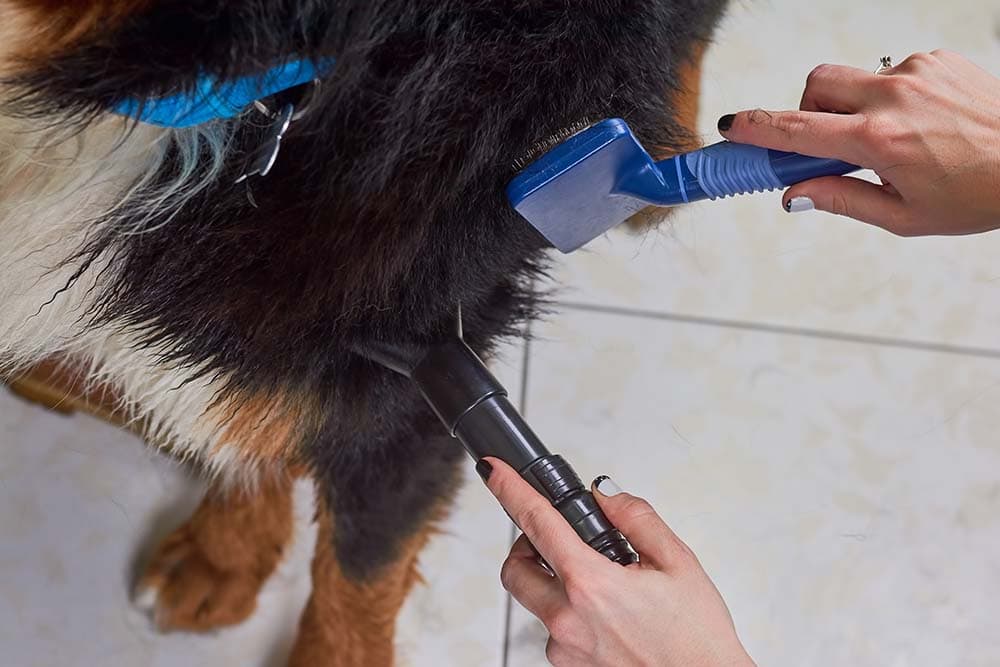
Keep the Dog Off Your Furniture
It may be hard to accomplish, but keeping your Bernese Mountain Dog off the furniture and especially your bed is very important for the control of your allergies. This will reduce your interaction with the dander and allergens. If possible, you may even want to keep your bedroom a dog-free zone for your health.
Change Your Air Filters
If you’re an allergy sufferer you already know the importance of keeping your air filters changed regularly. This routine should increase when you bring a dog into the equation. You’ll keep the air in your home clearer. Also, consider using allergy-reducing filters to remove more pet dander and allergens.
Clean Regularly
Vacuuming and cleaning regularly can make life with a dog easier. If you have the option, hardwood floors are better than carpets. Unfortunately, carpets hold pet dander and allergies more. If you do have carpets in your home, vacuum them daily and even clean them regularly to reduce the allergens you’re exposed to.
Talk to Your Allergist
Before you do anything that could upset your allergies, speak with your health professional. They know the extent of your allergies and whether having a dog is even an option for you. While you may want a pet badly, it’s best to heed their advice on the matter.
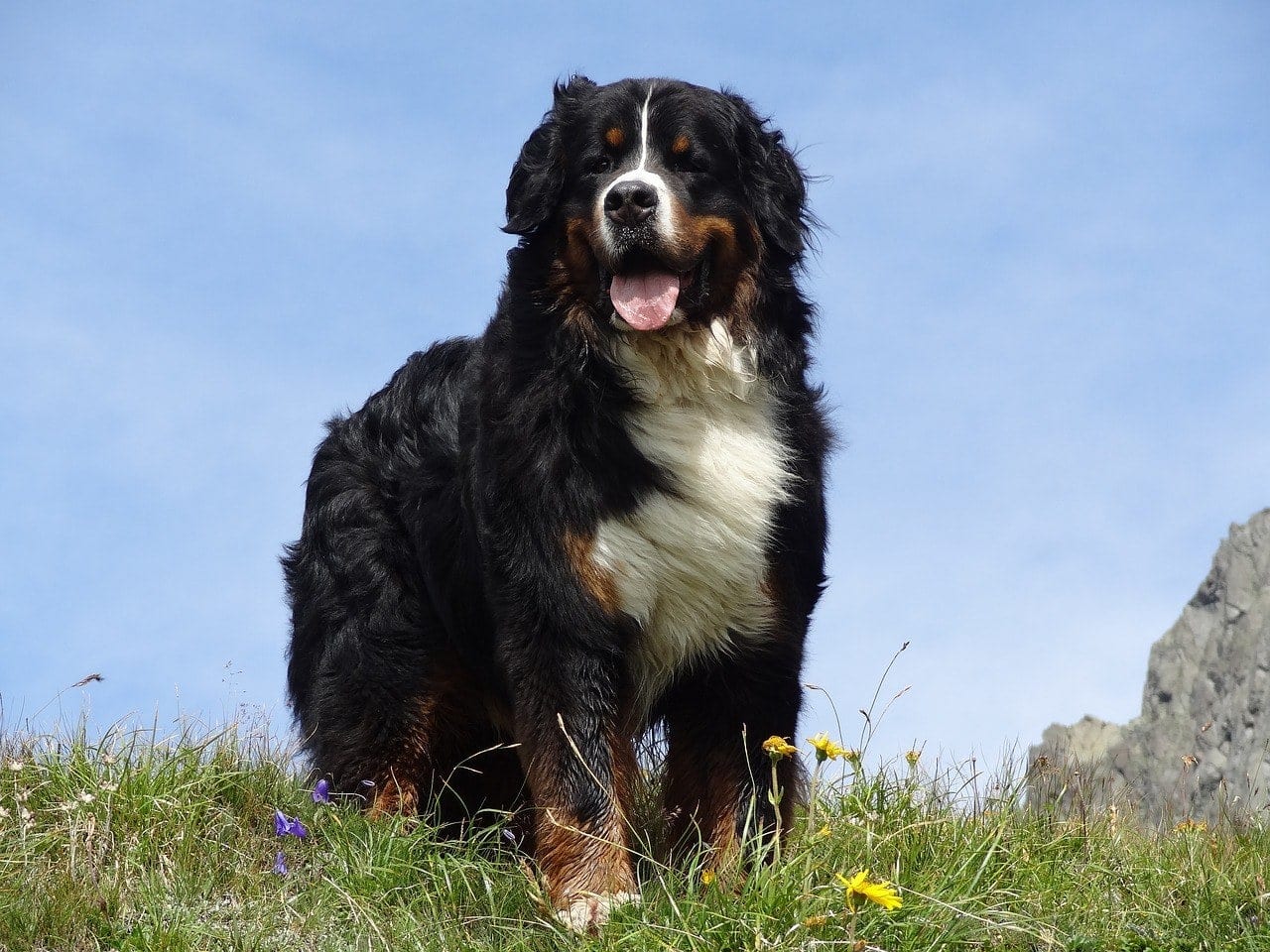
Conclusion
It’s clear to see the Bernese Mountain Dog is an incredible dog all around. While they may not be truly hypoallergenic, if you have issues with your allergies but want a canine companion, they are an excellent choice. By setting yourself and your dog a routine, you can easily welcome one of these dogs into your home, without too much worry. As always, check with your healthcare professional before making this important decision.
Featured Image Credit: PublicDomainPictures, Pixabay

